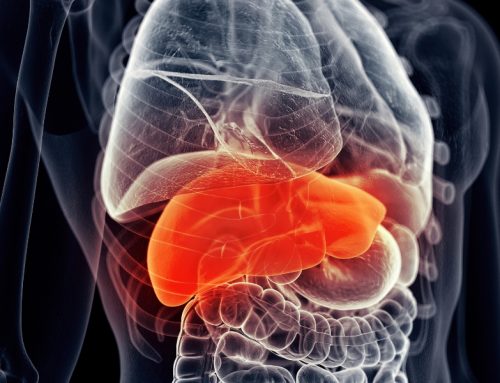Cancer? Two questions come to mind. 1) Is there a role for Coenzyme Q10 in the prevention or treatment of cancer? 2) Is it safe for cancer patients to take CoQ10 supplements?

Mantle et al see mutations in nuclear DNA induced by free radical oxidative damage and inflammation as important processes in the initiation and development of cancer. Coenzyme Q10 has antioxidant and anti-inflammatory properties. Thus, adjuvant treatment with Coenzyme supplements should be considered to protect against cancer development and progression.
In a 2024 review, Mantle et al have summarized the available evidence from cell culture studies, animal models, and clinical trials. The evidence that they present shows a generally positive picture, but more randomized controlled trials studies are needed.
The role of Coenzyme Q10 in cancer prevention and treatment can be seen in three ways [Mantle 2024]:
- Coenzyme Q10 as an electron carrier in the mitochondrial respiratory chain
- Coenzyme Q10 as a lipid-soluble antioxidant
- Coenzyme Q10 as an anti-inflammatory agent
Deficiency of Coenzyme Q10 and Increased Risk of Cancer
Mantle et al show that decreased blood levels of Coenzyme Q10 have been reported in patients with various types of cancer, e.g., breast cancer, cervical cancer, lung cancer, lymphoma, myeloma, and oral cancer. Observational studies have indicated that reduced blood levels of Coenzyme Q10 are a risk factor for the development or progression of several types of cancer, inter alia breast cancer, lung cancer, and melanoma. Moreover, reduced blood levels of Coenzyme Q10 are associated with a worsening disease prognosis.
It is important to remember that the pathophysiology of cancer varies from one cancer form to another. amongst different cancer types. The differences in mitochondrial metabolism also vary in different types of cancer. It is noteworthy that the structure and function of the mitochondria in malignant cells differ from the structure and function of the mitochondria in normal cells [Mantle 2024].
Coenzyme Q10 and Prevention of Cancer
In their review of existing studies, Mantle et al find that most of the studies are positive with respect to the role of Coenzyme Q10 in the prevention or treatment of cancer. The studies also provide evidence of a lack of adverse effects of Coenzyme Q10 in cancer patients.
Coenzyme Q10 and Cancer Treatment
First off, Mantle et al report that, to date, there have been no randomized controlled trials of the effect of Coenzyme Q10 supplementation alone directly on tumor development in cancer patients.
Some clinical trials have demonstrated that a combination of different substances together with Coenzyme Q10 have had a positive effect. Typically, in these studies, CoQ10 supplements have served as an adjuvant therapy to Tamoxifen treatment or have involved the combination of CoQ10 supplements with the B vitamins riboflavin and/or niacin and with antioxidant supplements such as selenium, Vitamin C, and/or Vitamin E.
For the most part, the positive effect has been the reduction of chemotherapy side effects or the reduction of cancer-induced inflammation [Mantle 2024].
Coenzyme Q10 and Chemotherapy
The protection of normal cells against the secondary effects of chemotherapy is an important aspect of Coenzyme Q10 as an adjuvant therapy in cancer treatment. Coenzyme Q10 can protect cells against secondary chemotherapeutic effects that affect the activity of the mitochondria. For example, in the case of doxorubicin, the available evidence supports the use of Coenzyme Q10 supplementation for the prevention of mitochondrial damage-associated side-effects [Mantle 2024].
Doxorubicin (Adriamycin) is a chemotherapeutic compound used for the treatment of bladder cancer, breast cancer, ovarian cancer, thyroid cancer, and other cancers. The cardiotoxicity of doxorubicin can result in heart failure. Coenzyme Q10 has showed the high effectivity against cardiotoxicity from the use of doxorubicin. Among other effects, doxorubicin treatment inhibits the endogenous synthesis of Coenzyme Q10. Supplementation with Coenzyme Q10 can attenuate the resulting CoQ10 deficiency [Mantle 2024].
Safety of Coenzyme Q10 for Cancer Patients
Mantle et al report that the medical literature index Medline lists more than 300 randomised controlled trials supplementing Coenzyme Q10 in a variety of disorders. None of the RCTs have reported any cancer-related adverse effects of CoQ10 supplementation. Of the cancer-specific RCTs, several have not reported any significant benefits following CoQ10 supplementation, but neither have they reported any adverse effects on the cancer outcome.
Conclusion: Coenzyme Q10 for the Prevention and Treatment of Cancer
Coenzyme Q10 supply is lower in cancer patients than in healthy individuals. Reduced levels of Coenzyme Q10 are a risk factor for developing cancer.
Coenzyme Q10 has antioxidant and anti-inflammatory properties that may protect against the initiation of cancer.
Some clinical studies point to a potential role for CoQ10 supplementation once cancer has developed.
Most of the clinical studies either show positive effects of Coenzyme Q10 in the prevention or treatment of cancer or provide evidence of a lack of adverse effects of Coenzyme Q10 on cancer progression.
Sources
Mantle D, Rowbottom H, Jones J, Potts, IM, Turton N, Dewsbury M, Lopez-Lluch G, Hargreaves IP. Energy metabolism as a therapeutic target in cancer: the role of Coenzyme Q10. Oxygen. 2024;4:122–138.
The information presented in this review article is not intended as medical advice. It should not be used as such.









Leave A Comment